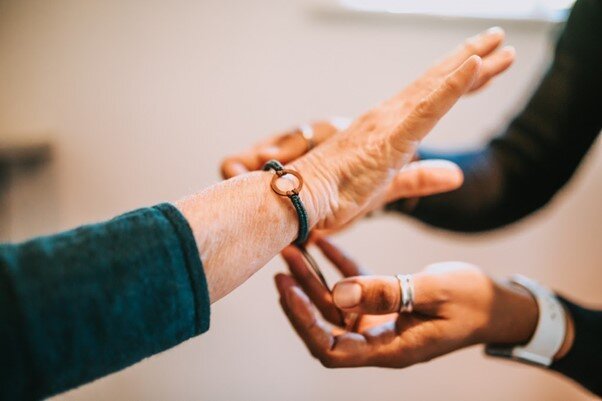Hope is Offensive
At the start of this new year, one of our founders, Ben Solanky, reflects on a week where the world has once again changed and challenged.
People can be angry, Papa but they can still be friends”
The voluntary words offered by a 5 year old when he overhears his father talk about the angry protestors who mobbed and entered Capitol Hill building this week.
Too simple? Too naive?
What challenges me is that I find the hope in these innocent words offends me and my instinctive reaction is to belittle it.
My response is to dismiss this idea. To guard myself against it. To build a barrier. A wall around my heart. Instead I judge my child as ‘sweet’ and ‘innocent’. It seems that it is me who is quick to judge rather than entertain such an offensive idea like friendship to solve our worldly problem of hatred.
And I ask myself why this is.
Is it because, like so many others, I feel that:
‘We’ve been here before… and here we go again’
Somehow the repetitive nature of this hope highlights the gritty reality we are facing. Revisiting hope seems offensive.
‘I used to believe that but…”
Somewhere along the line experience has aided us in building a great big wall to keep hope at bay. We know it’s there, but it’s just hard to get to. The result is to back off, to not engage. Realism makes hope offensive.
‘It’s too painful to allow ourselves to believe this’
Somehow we’ve been too close to hope before and had our hopes extinguished. This has hurt us. Really hurt us. Hurt makes hope offensive.‘Why is it nice? Why is it innocent? Isn’t it just utterly offensive?’
How can the thought of being friends with your enemies or those you hate be a ‘nice’ thing? Hope is not nice. It’s painful. It’s hard. It’s challenging and sometimes demands a sacrifice from us. Making hope just nice is offensive (and untrue).
In an age where hatred is being tweeted and taught, we also hear that there is another way. To teach love. To be courageous enough to champion difference and to choose the difficult path of empathy. To the extent of finding empathy with and compassion for your enemies.
That’s offensive. That’s radical.
We do not claim to have any answers to a pandemic of hatred but we do hold that teaching empathy and building compassionate people is part of building a peaceful world. We can learn to be friends with one another rather than continuing to fight.
As one of our team said: ‘It’s out of the mouths of babes and children’ that we see a future world that they can thrive in. And as for my son, he reminds me that having the courage to try to see hope is important not just for me, but for all of us.
No one is born hating another person … People must learn to hate, and if they can learn to hate, they can be taught to love, for love comes more naturally to the human heart than its opposite.” – Nelson Mandela
Empathy Action is currently looking to increase its empathy programmes. From using our handicrafts to activities and exercises to help students, colleagues, or family members, we have a number of resources we can share. Get in touch if you would like to know more.
Please see below for more resources sharing a message of radical hope.
The story of friendship between CP Ellis and Anne Atwater (Also dramatised in the film: “Best of Enemies“)
Accidental Courtesy documentary of the story of Daryl Davis (also see Daryl’s TED talk “Why I, as a black man, attend KKK rallies.“)
Friendship from Syria bracelet from Empathy Action’s ethical gift range and use for the basis of programme in your workplace, school or event



